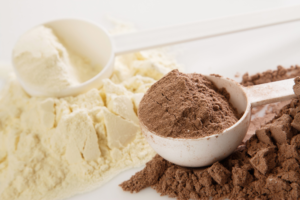
What Is the Most Processed Food?
In your quest to optimize your health and wellness, you may be trying to determine what is the most processed food and how to avoid

As you get older, it’s crucial to stay active. But staying active doesn’t necessarily mean keeping up with high-intensity exercises from your youth. For many aging adults, leisure activities can have a massive benefit. What aging adults do in their free time can be crucial for maintaining good health in the future. Keep reading to learn more about leisure activities for aging and other tips for healthy aging.
Part of aging well is minimizing the risk of major health concerns while also pursuing activities that bring joy and relaxation. Leisure activities keep the mind sharp and can maintain important cognitive abilities, including memory and communication skills. The health benefits of leisure activities in older adults can also include stress reduction, stress management, and mood improvement.
Leisure activities are any activity that promotes physical movement or engages the mind. Sometimes, leisure activities are called passive or active hobbies depending on the nature of the activity. A passive leisure hobby can be done without developing new skills, such as reading books, while an active leisure hobby focuses on creating or widening a skill set, such as quilting.
Leisure hobbies can include reading, playing cards, doing puzzles, painting, and more, all of which can help the brain focus on problem-solving skills. Some older adults may want to develop new skills, such as learning a language, a musical instrument, or a new recipe. Staying social with leisure activities such as visiting with family or friends can be beneficial for cognitive health, particularly because social interaction promotes a sense of belonging that can help reduce the risk of cognitive decline.
For leisure activities, walking, nature hikes, yoga, swimming, and dancing can all be beneficial. Balance exercises can help older adults stay strong to reduce the risk of falling. Some older adults may want to explore exercises such as Tai Chi, which can improve cardiovascular health and strengthen the body at the same time. Gardening is a pastime that can help older adults stay physically and mentally active.
Ideally, older adults should participate in physical activity for 150 minutes each week, such as going on short, brisk walks for 30 minutes each day. Outdoor activity is important because research suggests spending at least 120 minutes outside each week can be beneficial for overall physical and emotional health. Other leisure activities such as hobbies can be done for at least two hours a day to promote cognitive benefits.
Aside from staying active with leisure activities, older adults should also pay attention to nutritional health. The body can better manage the aging process when gut health and dietary needs are maintained. Using supplements such as probiotics formulated for aging adults is an ideal way to promote better body health.
Physical and cognitive leisure activities are very important for aging adults. From benefits such as improving cardiovascular health to maintaining cognitive abilities like memory, leisure activity each day is essential for healthy aging. For more tips about aging well, visit Panacea Scientific today.

In your quest to optimize your health and wellness, you may be trying to determine what is the most processed food and how to avoid

Can you drink protein powder on an empty stomach? There are a lot of misconceptions about whey protein. Many people believe that you can’t drink

Blood sugar management is vital for your health. When your blood sugar is too high, your white blood cells weaken, leaving you at greater risk

Payment types accepted:
Visa/MC/Discover/ American Express
© Copyright Panacea Scientific 2020. All rights reserved. | Website by Infinite Web Designs